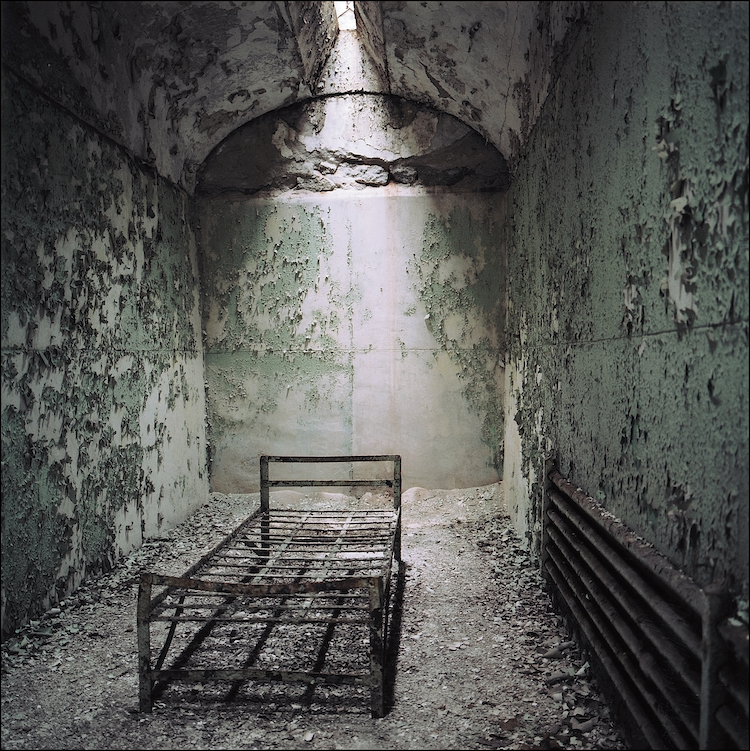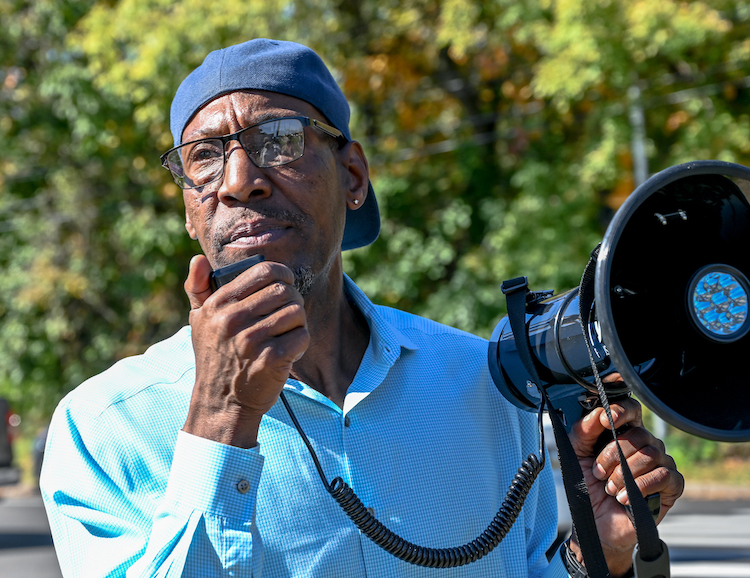Analysis
The link between race and solitary confinement in Pennsylvania prisons

Currently, nearly 1,000 Pennsylvania inmates are being held in solitary confinement. More than 75% have been in for longer than 30 days. Pennsylvania Department of Corrections
In solitary confinement, incarcerated people are kept in cells about 8 x 10 feet. They’re provided only basic necessities, like a washcloth and a bar of soap, and they’re given food through a slot in the door.
The commonwealth has the sixth-largest prison population among all 50 states and its incarceration rate and racial disparity in incarceration are approximately equal to the national average. Unsurprisingly, the racial disparities seen in Pennsylvania’s incarceration rates persist throughout the use of disciplinary action in prisons.
RELATED ARTICLES
A recent study published in Science Advances revealed that the risk of solitary confinement for Black men in the commonwealth is more than eight times the risk for white men. The study, conducted by sociology experts at Columbia and Boston universities, found that Latinos are 2.5 times as likely as white men to be held in solitary confinement.
Looking at administrative records on state prisons from 2007 to 2016, the study followed a birth cohort of individuals born between 1986 and 1989. The analysis showed that 11% of all Black men in the state born during that period eventually wound up in solitary confinement by age 32.
“We know already that Black and brown men particularly, and women as well, are disproportionately represented in prison populations,” state Rep. Donna Bullock told City & State. “So, if you are using solitary confinement as a tool in those prison populations, that means that they're overrepresented.”

The practice of solitary confinement got its start in Pennsylvania. The form of prison discipline was introduced to the Eastern State Penitentiary in Philadelphia in the 1800s. Dr. Kristofer “Bret” Bucklen, director of the Pennsylvania Department of Corrections Bureau of Planning, Research & Statistics, said the practice is today used for either disciplinary custody or administrative custody.
Administrative custody, which takes place when incarcerated people are put in confinement for population management or protective reasons, increased dramatically during the COVID-19 pandemic as prisons attempted to slow the spread of the virus. Disciplinary custody, by comparison, is in response to infractions.
While Bucklen said minor infractions can lead to less restrictive disciplinary actions, such as loss of privileges, he said there’s a fair degree of latitude in the response to a violation.
“If there's enough evidence to uphold charges, then a sanction is imposed, which could be minor restrictions like loss of privileges, maybe loss of TV time, loss of some visits or something like that, all the way up to time in the restrictive housing, unit which is solitary confinement, essentially,” he said.
“I’ve seen what it does to people. Not only what it did to me, but it destroyed other men to the point where they would self-harm just so they could get a trip to the hospital.” – John Thompson
The number of people staying in restricted housing units has decreased in recent years, Bucklen said. According to the Department of Corrections, the number of inmates held in RHU decreased by nearly 30% from December 2019 to December 2020. At the same time, however, the average length of stay in the RHU increased from 104 days to 117 days.
John Thompson, a social and political organizer with the Abolitionist Law Center, was incarcerated for 37 years. He said he spent 13 to 14 of those years in solitary confinement.
“Most people think that the people that are confined in solitary confinement are the worst prisoners in the institution. That's simply not true,” Thompson told City & State. “The majority of prisoners are down there for disobeying an order, which could be anything, or for possessing contraband … I’ve seen guys come down to the hole for 30 days, and three years later, they’re still there.”
Not only is the practice associated with psychological harm and poor post-release outcomes, but its long-term usage has been deemed a violation of the United Nations Convention Against Torture and Other Cruel, Inhuman or Degrading Treatment or Punishment, or UNCAT. The UN issued a report in 2011 stating that more than 15 days in solitary confinement should be considered a violation. Thompson said his longest stint in solitary confinement was about three and a half years.
“I’ve seen what it does to people. Not only what it did to me, but it destroyed other men to the point where they would self-harm just so they could get a trip to the hospital. Or they would barricade themselves in their cell just to get some attention,” he said.

Incarcerated people in solitary confinement are typically locked in their cells for up to 23 hours a day with minimal contact. Special Management Units, which were created for dangerous or antagonistic inmates, have received backlash for their policy violations and related violence.
Thompson said he was one of the first 20 people to be put in an SMU, where he said, “you’re completely cut off,” as opposed to typical solitary confinement where you could still talk to inmates in your cell block.
“That was supposed to be a unit that would basically destroy people,” he said. Confinement has been shown to induce hallucinations, depression, anxiety, paranoia and other mental health issues. Thompson said the nature of the confinement caused him to become more hostile in his responses to everything.
“We were extremely hostile because that was the only means of communication. You could not just ask for something, like a roll of toilet paper, and get it. You had to be actually very aggressive,” Thompson said. “So, that implanted in me that hostility, that aggression which I still suffer with right now.”
“Solitary confinement is inhumane and ineffective in many ways.” – State Rep. Donna Bullock
Twenty-three states and Washington, D.C. have enacted statutes that limit or prohibit solitary confinement, while several other states have limited its use through administrative code, policy or court rules. Pennsylvania is not one of them.
Bullock, chair of the General Assembly’s Legislative Black Caucus, introduced House Bill 1037 alongside state Rep. Tina Davis, a Democrat from Bucks County. The bill seeks to prohibit the use of solitary confinement within vulnerable populations in prisons, including pregnant women, members of the LGBTQ community and inmates under 21 and over 70. It would also put the cap on solitary confinement for all inmates at 15 days.
“Solitary confinement is inhumane and ineffective in many ways,” Bullock said. “I think if we moved away from a punitive [approach] then we can look at folks as humans and say, ‘How can we help them?’”
Bucklen said the DOC’s disciplinary procedures allow for other alternatives. He said they’ve implemented forms of informal sanctions that take away privileges such as visitation loss, but those with a history of violence or infractions often must be kept in confinement for the safety of others. He also noted that solitary confinement numbers and the racial disparities in incarceration have decreased since the study’s data was collected in 2016.
Outside of the DOC’s attempts to change the system, there are various statewide efforts to do away with solitary confinement. Thompson said the Abolitionist Law Center has campaigns to restrict its use in state and county prisons, and that he is engaging with Philadelphia City Council to ban it.

